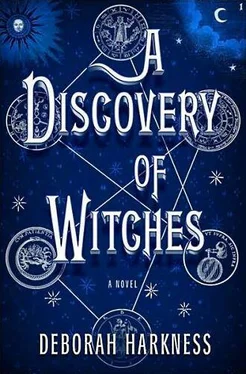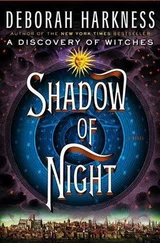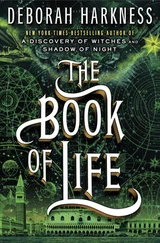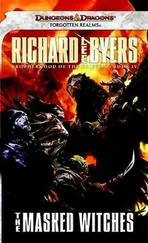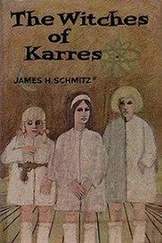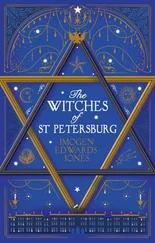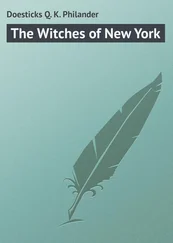“You’ve done your homework,” he said approvingly. “I didn’t follow much of Clairmont’s early work—his chemistry is what interests me—but his publications on wolves caused a lot of excitement.”
“How come?”
“He had amazing instincts—why the wolves picked certain places to live, how they formed social groups, how they mated. It was almost like he was a wolf, too.”
“Maybe he is.” I tried to keep my voice light, but something bitter and envious bloomed in my mouth and it came out harshly instead.
Matthew Clairmont didn’t have a problem using his preternatural abilities and thirst for blood to advance his career. If the vampire had been making the decisions about Ashmole 782 on Friday night, he would have touched the manuscript’s illustrations. I was sure of it.
“It would have been easier to explain the quality of his work if he were a wolf,” Chris said patiently, ignoring my tone. “Since he isn’t, you just have to admit he’s very good. He was elected to the Royal Society on the basis of it, after they published his findings. People were calling him the next Attenborough. After that, he dropped out of sight for a while.”
I’ll bet he did. “Then he popped up again, doing evolution and chemistry?”
“Yeah, but his interest in evolution was a natural progression from the wolves.”
“So what is it about his chemistry that interests you?”
Chris’s voice got tentative. “Well, he’s behaving like a scientist does when he’s discovered something big.”
“I don’t understand.” I frowned.
“We get jumpy and weird. We hide in our labs and don’t go to conferences for fear we might say something and help someone else have a breakthrough.”
“You behave like wolves.” I now knew a great deal about wolves. The possessive, guarded behaviors Chris described fit the Norwegian wolf nicely.
“Exactly.” Chris laughed. “He hasn’t bitten anyone or been caught howling at the moon?”
“Not that I’m aware of,” I murmured. “Has Clairmont always been so reclusive?”
“I’m the wrong person to ask,” Chris admitted. “He does have a medical degree, and must have seen patients, although he never had any reputation as a clinician. And the wolves liked him. But he hasn’t been at any of the obvious conferences in the past three years.” He paused. “Wait a minute, though, there was something a few years back.”
“What?”
“He gave a paper—I can’t remember the particulars—and a woman asked him a question. It was a smart question, but he was dismissive. She was persistent. He got irritated and then mad. A friend who was there said he’d never seen anybody go from courteous to furious so fast.”
I was already typing, trying to find information about the controversy. “Dr. Jekyll and Mr. Hyde, huh? There’s no sign of the ruckus online.”
“I’m not surprised. Chemists don’t air their dirty laundry in public. It hurts all of us at grant time. We don’t want the bureaucrats thinking we’re high-strung megalomaniacs. We leave that to the physicists.”
“Does Clairmont get grants?”
“Oho. Yes. He’s funded up to his eyeballs. Don’t you worry about Professor Clairmont’s career. He may have a reputation for being contemptuous of women, but it hasn’t dried up the money. His work is too good for that.”
“Have you ever met him?” I asked, hoping to get Chris’s judgment of Clairmont’s character.
“No. You probably couldn’t find more than a few dozen people who could claim they had. He doesn’t teach. There are lots of stories, though—he doesn’t like women, he’s an intellectual snob, he doesn’t answer his mail, he doesn’t take on research students.”
“Sounds like you think that’s all nonsense.”
“Not nonsense,” Chris said thoughtfully. “I’m just not sure it matters, given that he might be the one to unlock the secrets of evolution or cure Parkinson’s disease.”
“You make him sound like a cross between Salk and Darwin.”
“Not a bad analogy, actually.”
“He’s that good?” I thought of Clairmont studying the Needham papers with ferocious concentration and suspected he was better than good.
“Yes.” Chris dropped his voice. “If I were a betting man, I’d put down a hundred dollars that he’ll win a Nobel before he dies.”
Chris was a genius, but he didn’t know that Matthew Clairmont was a vampire. There would be no Nobel—the vampire would see to that, to preserve his anonymity. Nobel Prize winners have their photos taken.
“It’s a bet,” I said with a laugh.
“You should start saving up, Diana, because you’re going to lose this one.” Chris chuckled.
He’d lost our last wager. I’d bet him fifty dollars that he’d be tenured before I was. His money was stuck inside the same frame that held his picture, taken the morning the MacArthur Foundation had called. In it, Chris was dragging his hands over his tight black curls, a sheepish smile lighting his dark face. His tenure had followed nine months later.
“Thanks, Chris. You’ve been a big help,” I said sincerely. “You should get back to the kids. They’ve probably blown something up by now.”
“Yeah, I should check on them. The fire alarms haven’t gone off, which is a good sign.” He hesitated. “’Fess up, Diana. You’re not worried about saying the wrong thing if you see Matthew Clairmont at a cocktail party. This is how you behave when you’re working on a research problem. What is it about him that’s hooked your imagination?”
Sometimes Chris seemed to suspect I was different. But there was no way to tell him the truth.
“I have a weakness for smart men.”
He sighed. “Okay, don’t tell me. You’re a terrible liar, you know. But be careful. If he breaks your heart, I’ll have to kick his ass, and this is a busy semester for me.”
“Matthew Clairmont isn’t going to break my heart,” I insisted. “He’s a colleague—one with broad reading interests, that’s all.”
“For someone so smart, you really are clueless. I bet you ten dollars he asks you out before the week is over.”
I laughed. “Are you ever going to learn? Ten dollars, then—or the equivalent in British sterling—when I win.”
We said our good-byes. I still didn’t know much about Matthew Clairmont—but I had a better sense of the questions that remained, most important among them being why someone working on a breakthrough in evolution would be interested in seventeenth-century alchemy.
I surfed the Internet until my eyes were too tired to continue. When the clocks struck midnight, I was surrounded by notes on wolves and genetics but was no closer to unraveling the mystery of Matthew Clairmont’s interest in Ashmole 782.
The next morning was gray and much more typical of early autumn. All I wanted to do was cocoon myself in layers of sweaters and stay in my rooms.
One glance at the heavy weather convinced me not to return to the river. I set out for a run instead, waving at the night porter in the lodge, who gave me an incredulous look followed by an encouraging thumbs-up.
With each slap of my feet on the sidewalk, some stiffness left my body. By the time they reached the gravel paths of the University Parks, I was breathing deeply and felt relaxed and ready for a long day in the library—no matter how many creatures were gathered there.
When I got back, the porter stopped me. “Dr. Bishop?”
“Yes?”
“I’m sorry about turning your friend away last night, but it’s college policy. Next time you’re having guests, let us know and we’ll send them straight up.”
The clearheadedness from my run evaporated.
“Was it a man or a woman?” I asked sharply.
Читать дальше
